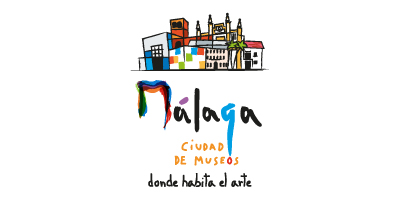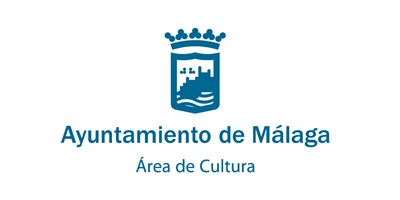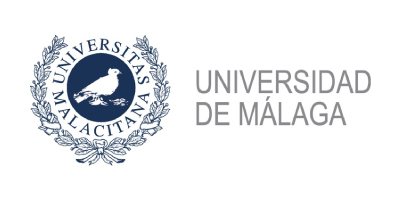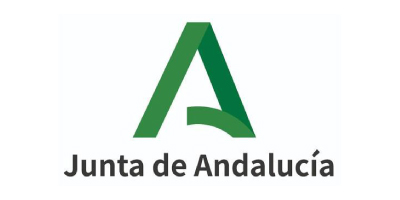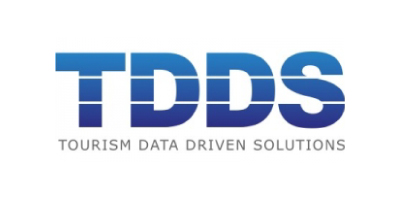#CMMalaga21
Cities & Museums Webinar Forum Program
#FYCMAON
Cities & Museums Webinar Forum
CM Malaga has held a series of virtual meetings under the title, Cities & Museums Webinar Forum. These meetings have been used to analyse the consequences, discuss future scenarios, and present examples of technologically advanced solutions carried out in cities that stand out for their heritage offerings, museums, and other cultural institutions in the world.
The Cities & Museums Webinar Forum has been held regularly throughout 2020 and the first half of 2021 combining conferences by international and national speakers with expert round tables and practical workshops or demonstrations.
The economic, social and health crisis in which we have been immersed for two months has forced the closure of countries, cities, companies, and cultural institutions in an unprecedented situation. In this new scenario, it is mandatory to analyse the consequences and the new world that will emerge after the pandemic.
The tourist and cultural industries have been especially affected and their necessary reconversion, which has already been announced for several years, towards more sustainable, resilient, and technological models is now imperative.
Full Webinar Calendar
The digitization imposed by the post-covid era, What opportunities does it offer to the cultural and tourist sector? What will be the role of technology in the management of tourism and museums in terms of accessibility, connectivity, or interaction?
Speakers:
Román Fernández-Baca Casares
General Director of Fine Arts, Ministry of Culture and Sports, Gobierno de España
Consequences of the rapid digital transformation of cultural institutions and museums as a result of the pandemic. Opportunities created by this transformation in building new audiences through new roles, digital access to cultural heritage and the promotion of the current artistic production.
The consequences of the pandemic and the economical crisis: are they forcing museums and other cultural centers to revaluate their mission? Would they need to consider new roles and new services for the society, the artist and their own communities in order to increase engagement among their regular audience, while also attracting new audiences? How has the ongoing digital transformation of museums and art centers been affected by the fast-paced changes brought by the pandemic?
Welcome:
Patricia del Pozo Fernández
Minister of Culture and Historical Heritage, Government of Andalusia
Speakers:
Mar Sánchez Estrella
General Secretary for Cultural Innovation and Museums, Ministry of Culture and Historical Heritage, Government of Andalusia
Spain has gone from trying to limit mass tourism, which was drowning its cities, to start thinking about policies to attract tourists. From almost 85 million visitors in 2019 to practically zero. This is, by far the worst crisis that international tourism has faced since records began. After an unprecedented moment of zero tourism, the recovery of the industry requires the definition of a new model based on highly digitalised management. The new tourist demands much more sustainable services and products than those we knew about until now. It also requires that tourists’ real impact on the environment can be measured and tested. So, how do we rebuild a sector that accounts for 12% of the domestic GDP?
Keynote:
Natalia Bayona
Director of Innovation, Education and Investments, United Nations – World Tourism Organization
Speakers:
Rosa Sánchez Jiménez
Deputy Mayor, Delegate for Tourism, City Promotion and Investment Recruitment, Malaga City Hall
Given the reduction in public subsidies, it is necessary for civil society to get involved and participate in the conservation, research and dissemination of artistic heritage, as well as in its production. We are interested in knowing the different formulas and approaches adopted by both public and private museums in Spain and beyond. Museums and cultural centers have the opportunity, in this digital era, to intensify the provision of services to the artistic sector and society, both to local and global audiences, and even to redefine their functions, mission and vision.
Welcome:
María Dolores Jiménez-Blanco
General Director of Fine Arts, Ministry of Culture and Sports – Government of Spain
Case Study:
Estrella Maroto
Manager – Plataforma Temática Interdisciplinar Patrimonio Abierto: Investigación y Sociedad (PTI-PAIS), Consejo Superior de Investigaciones Científicas – CSIC
Part I: The museum of tomorrow. Towards a public-private partnership. Sustainability, participation and dialogue in the digital age
Speakers:
Dean Phelus
Senior Director, Leadership Programs & Special Events, American Alliance of Museums – AAM
Juan Antonio Álvarez Reyes
Part II: New approaches (feminine?) from the museum and cultural centers
Speakers:
Verónica Castillo
Deputy Director, Collection & Exhibition at M+ Museum for Visual Culture, Hong-Kong
Inspiring Experience: Grupo Social ONCE. Strategies, aims and results of an artistic and cultural integration and inclusion program. Latest digital tools
Speaker:
The COVID-19 pandemic has caused a change in the mentality of citizens. Now we are more aware of our impact on the environment, we demand a healthier and more relaxed lifestyle, seeking more efficient mobility solutions in greener environments. Moreover, the post-COVID era has brought with it the development of much more local consumption models. For this reason, cities are in a process of change in line with the demands of their citizens, and the digital transformation of the new metropolis will be a key element for advancing in locally based techno-innovative cities.
Keynote: “Creative industries and Smart Cities for post-Covid-19 era”
Felipe Buitrago
Vice Minister of Creativity and the Orange Economy, Colombia
Inspiring Experience: “Fair Saturday, art and Culture with social impact”
Jordi Albareda
Founder and CEO, Fair Saturday
Speakers:
Miriam Díaz
Councilor for Tourism, Commerce, Markets and Institutional Relations, Santander City Council
Case Study: Elektrart
For almost two decades now, Malaga has been building an unprecedented museum network among the Andalusian capitals. The city has placed its cultural offer among the most competitive ones in Spain. The so called ‘City of Museums’ has attracted millions of tourists who have vanished with the pandemic. Museums have been forced to adapt to this new normality and focus their efforts on attracting and working for locals.
How have museums in Malaga experienced the closure of their institutions? What initiatives have they carried out from the digital world? Once open, what strategies are they following to engage regular and new audiences?
Speakers:
#FYCMAON
This webinar addresses some of the key issues affecting Spain´s current cultural scene and chiefly what is considered as an unjustified lack of visibility and influence of the visual artist in the world stage.
The cultural analysis is brought about by renowned international museum professionals, also academics, art critics and curators. They will be discussing some of the latest developments in the country´s art production. In short participants will be debating about the role of the museum and other cultural centers in the digital age. Will the relevance of these agencies improve by catering to the outside world by providing creative activities which are relevant to wider audiences? Both the characteristics of our art (Spanish art) and its mediation and representation structures will be examined.
Part I: As seen from the Museum
Speakers:
Manuel Fontán del Junco
Museum and Exhibition Director, Fundación Juan March. Director, Museo de Arte Abstracto Español, Cuenca and Museo Fundación Juan March, Palma
Part II: Building Bridges, a world of opportunities
Case Study:
Antonio Rodríguez
Speakers:
Part III: Inspirational Experiences
Biblioteca Nacional de España. Virtual exhibitions, also books?
#FYCMAON
The aim of this webinar is to debate the relationship between citizens and the culture and art through the museum and other cultural organizations. In a time of extraordinary social transformation, a consequence of technological and scientific advances, borders are diluted, and citizens can fully participate in the cultural events, contributing with new perspectives and enriching the narratives.
Throughout this forum, a group of prominent artists, theorists and cultural agents, experts in digital thought and production, will analyse the characteristics of this new humanism, the changes occurred in communication and storytelling, as well as the way art is produced and consumed, due to the undoubted transformative capacity of digital tools.
Introduction: Emotions and Digital Technologies
Pau Alsina
Associate Professor of Arts and Humanities, Universidad Oberta de Catalunya
Phd. in Philosophy. Director of the Art, Science and Technology Program, UOC
Part I: Art, networks and content. The new stories
Speakers:
Enrique Tomás
Sound artist, Researcher and Teacher, Tangible Music Lab, Kunstuniversität Linz, Austria
Forum II: Presence and virtuality. Characteristics of the new dialogue
Speakers:
Inspiring Experience: The digital conversion of La Casa Encendida, a center at the service of the community
There are many scenarios that arise after the pandemic, but none of them contemplate a return to the so called “old normality”. The COVID19 crisis has changed our world forever. However, it has become an extraordinary and unique opportunity to build a better future. What is already being done in the cultural sector that allows us to imagine what will come? What inspiring experiences that have been reinvented, can we take as a reference in the regeneration of our societies?
Welcome:
Carmen Páez Soria
Deputy Director-General, Ministry of Culture and Sports, Government of Spain
Inspiring Cultural Destinations
José Luis Costillas
Councilor for Education, Culture, Social Centers, Public Health and Consumption, Oviedo City Council
Smart Touristic Management
New ways of sustainability in Culture
New ways of communicating
Guest City: Cuenca, Ecuador


